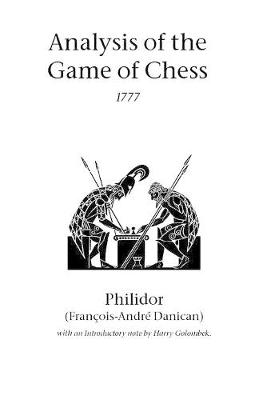Published in 1777, and including the text of the 1749 edition, this is possibly the first chess book in English. The greatest chess-player amongst musicians and the greatest composer amongst chess-players, Philidor was undoubtedly the leading player in the eighteenth century. For nearly fifty years he was what we would now call World Champion and for many of these years he was the leading opera composer in France. Our Philidor was born in 1726 near Paris and was remarkably precocious, both in music and chess. By the age of eleven he had had a motet performed at the Chapel Royal in Versailles and he was already a fine chess-player in his early teens. The best player in France, M. de Kermur, Sire de Legal, took an interest in the boy. At first it seems he gave him the odds of a Rook, then, after three more years, had to play him level and finally he was beaten by his erstwhile pupil in a match in 1750. But already for some years he had been considered the best player in France. It is interesting to observe that he never regarded himself as a professional chess-player but solely as a musician who supplemented his income from composing by playing chess and giving blindfold displays.
In 1747 he utilized these introductions on a visit to England where he demonstrated how much greater a player he was than any of his contemporaries by beating Philip Stamma in a match at odds in London by 8-1. This was an astonishing feat since Philidor gave Stamma the odds of the move and the formidable advantage that any drawn game should count as a win for Stamma. He returned to the Continent and there wrote and published in 1749 in Paris the celebrated Analyse du jeu des Echecs. The theme of the work - that 'pawns are the soul of chess' - was so modern as to be about two hundred years before its time. It was rather as though Nimzowitsch and his theories of the twentieth century were contemporary with Philidor: he was not really understood until a couple of centuries had passed. But what he wrote on the endgame and his general advice was obviously sound and marked a step forward in the way of scientific analysis.
- ISBN10 1843821613
- ISBN13 9781843821618
- Publish Date 15 January 2005
- Publish Status Out of Print
- Out of Print 1 December 2022
- Publish Country GB
- Publisher Zeticula Ltd
- Imprint Hardinge Simpole Publishing
- Format Paperback (US Trade)
- Pages 336
- Language English
